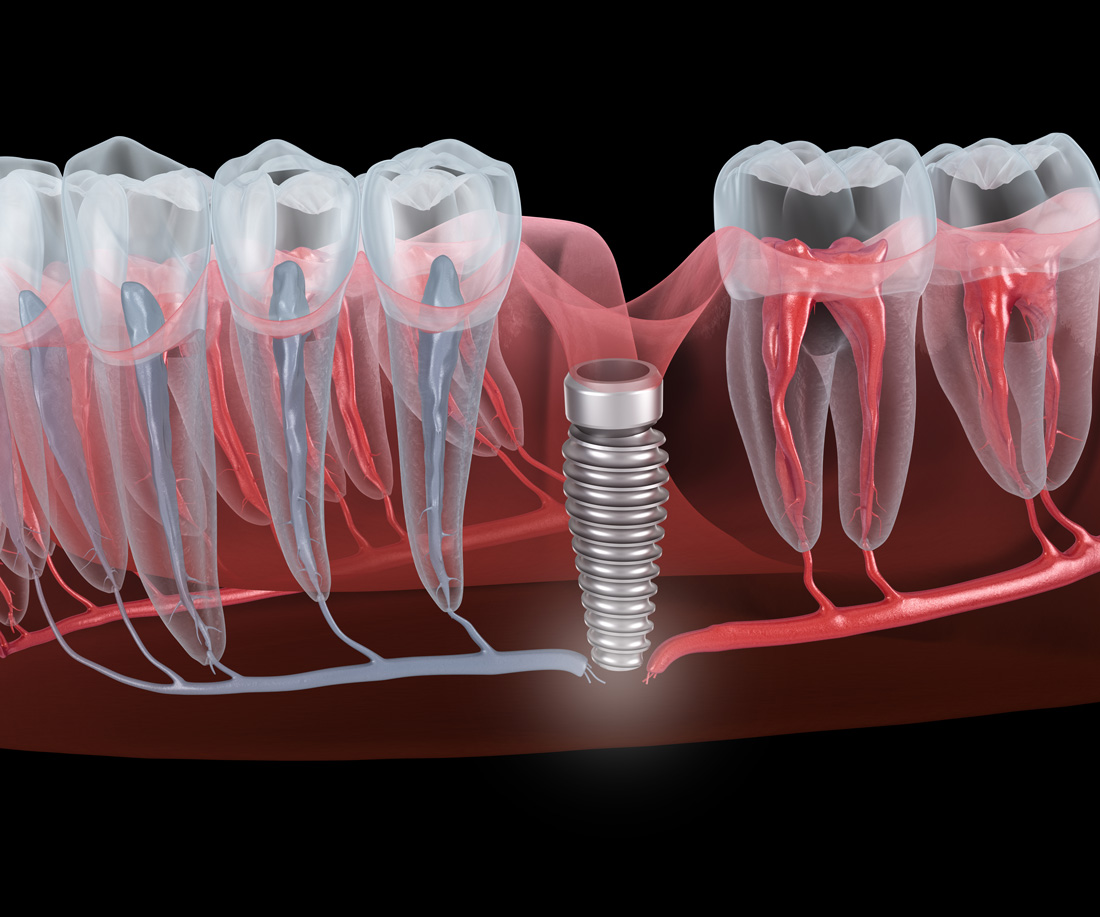
When Are Dental Implants Medically Necessary?
Dental implants offer a long-term solution for tooth loss, but the question many patients ask is “When are dental implants medically necessary?” While they are often seen as a cosmetic enhancement, there are certain situations where dental implants are required for overall oral health and functionality.
These cases go beyond aesthetics and address essential health concerns, making implants an integral part of treatment.
When Are Dental Implants Medically Necessary?
Dental implants become medically necessary when tooth loss or oral health issues significantly affect a person’s ability to function, eat, or speak properly. Implants do more than improve appearance. Whether due to trauma, disease, or underlying medical conditions, the following scenarios highlight when implants go from being a cosmetic choice to a medical need.
One of the most common reasons for needing implants is tooth loss caused by trauma or injury. If teeth are lost in an accident, such as a car crash or sports-related injury, dental implants can restore both appearance and function. Importantly, they help prevent further issues. These can include misalignment of surrounding teeth and jawbone deterioration.
Another situation that calls for implants is severe gum disease. If conditions like advanced periodontal disease lead to tooth loss, traditional treatments may not be enough to restore oral health. In such cases, dental implants become necessary to maintain the jawbone’s structure and prevent further bone deterioration. Without intervention, this could result in compromised function, significant bone loss and changes to the facial structure and appearance over time.
Bone Loss and Reconstructive Needs
Bone loss in the jaw is another key indicator that dental implants may be medically necessary. When teeth are missing for extended periods, the surrounding bone begins to resorb, or shrink, due to a lack of stimulation from chewing. Dental implants provide the necessary support to stimulate bone growth and prevent further bone resorption. In cases of significant bone loss, more advanced options like zygomatic implants or full-arch dental implants may be required to restore function and stability.
Dental implants often play a critical role in reconstructive surgery for individuals who have undergone treatment for oral cancer. These patients may require implants to restore both functionality and aesthetics after extensive treatment has resulted in tooth loss. Implants in these cases support the patient’s ability to chew and speak, helping to improve their quality of life after recovery.
Factors That Influence Medical Necessity
Several factors determine whether dental implants are considered medically necessary. First and foremost is the patient’s oral health status.. Certain medical conditions, such as uncontrolled diabetes or autoimmune disorders, could complicate the process, which is another reason why getting treatment from a Specialist team is important. The Team at Dental Implants GPS includes Oral and Maxillofacial surgeons, Medical Physicians and Prosthodontists who can offer the care needed to be able to treat more difficult cases.
Another factor is the impact on the patient’s quality of life. If missing teeth severely affect the ability to eat, speak, or maintain proper oral hygiene, dental implants may be required to restore normal function. Insurance coverage can also play a role, as many plans will cover dental implants if deemed medically necessary.
Restore Your Oral Health
At Dental Implants GPS, we specialize in determining the best solutions for patients who need dental implants for medical reasons. Whether it’s trauma, gum disease, or bone loss, our Guided Precision System ensures that each implant is carefully planned and placed to restore both function and appearance.
For more complex cases, such as full-arch dental implants or zygomatic implants, our team has the expertise to provide stable, long-lasting results. Request an appointment today to learn how medically necessary dental implants can improve your quality of life.

